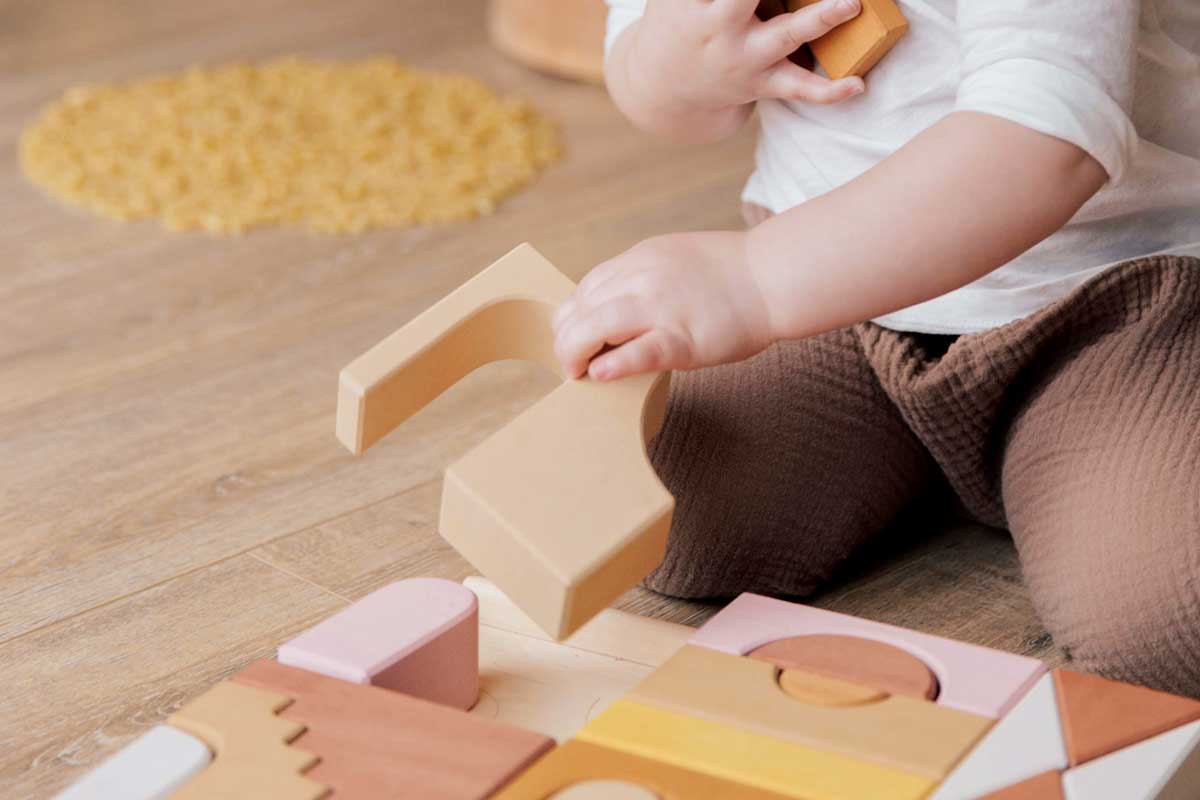Advertisement
Let’s Play!
It’s essential for children’s growth and development
Fact-Checked
This article has been written and fact-checked by experts in the field.

Do you remember your favourite early childhood toys or books? How about favourite games, including imaginary ones, with siblings or friends? Early childhood play is essential for brain development, and it’s key to unlocking imagination and creativity as children grow.
Advertisement
Play matters, and here’s why
Children love to play, and they make sense of the world around them through playing. “Unstructured play is important for children, because it helps them develop their imagination and creativity,” says Catherine Cloutier, clinical counsellor at Sandstone Counselling in Kamloops, BC. But so does boredom, she adds. “They need to struggle with boredom first, before creativity can kick in.”
Unstructured play, or free play, helps young children learn communication and life skills, as well as emotional self-regulation, and it also fosters emotional well-being. Playing with sensory materials like toys or tools and also engaging in physical play can help them develop fine motor skills, hand-eye coordination, and self-confidence.
Playtime benefits
- When young children are engaged in one-on-one playtime, their behaviour improves and their cortisol levels lower.
- Playing with traditional toys may help children develop better language skills than playing with electronic toys.
- Many animals play (yes, even lizards, turtles, and wombats, too!), and that helps them learn essential life skills and social skills.
Advertisement
Toys―catalysts to creativity
Walk through the children’s section of a thrift store and you’ll find yourself wading through a sea of toys, some of which may be brand new. And toy stores are swimming with choices. The options are nearly endless: from simple, classic toys to new, elaborate so-called enriching toys, touted to boost development and skills.
Cloutier says, “All toys, simple and elaborate ones, have a role in development, but it’s all about balance and moderation.” In fact, we can think of them as catalysts to creativity and imagination, rather than the cause of it.
Advertisement
Is less more?
It may feel like we’re depriving our children of important enrichment opportunities if we don’t keep up with the latest trend in toys, but, as Cloutier says, “Less is more when it comes to toys, and sometimes the simplest toy fosters the biggest joy.”
Some parents prefer to have fewer toys for their children, believing that children can be overwhelmed when they have too many, or because they prefer to encourage children to be creative with less. Versatile “age-fluid” toys are a good choice, because they can be integrated into complex games that children play at older ages.
When kids’ birthdays roll around and family and friends ask for gift suggestions, steer them toward non-toy gift alternatives, such as activities and experiences, which can boost creativity in other ways. Alternatively, a small monetary contribution (some people match dollar amount to the child’s age) from each birthday guest can be pooled to purchase a meaningful toy or book.
Screen time before bedtime: yes or no?
Screentime before bed is associated with later sleeping time and lesser quality sleep. Over time, that can result in negative behaviour issues, decreased school performance, and an increased risk of obesity.
- Turn screens off at least one hour before bed to avoid overstimulation and melatonin (sleep-enabling hormone) suppression.
- “Have a bedtime ritual in place, whether that’s a bath or winding down with a book,” says Cloutier.
Advertisement
Learning to let go
Although there is value in rotating toys to keep the interest fresh or when there are too many of them, there also comes a time when parting with some is the right choice. As children grow up, so does their choice in toys. Wooden building blocks and simple puzzles appeal to toddlers, but perhaps less so to school-aged kids who may be interested in experimenting with more complex toys. This presents a good opportunity to pass on no-longer-used toys.
Letting go is not easy (even adults struggle sometimes), but it’s a valuable habit to teach our children. “We can encourage children to be kind in donating toys to charity and [to] people in various walks of life who do not have abundance,” says Cloutier.
Advertisement
Play together in their world and yours
Sometimes it’s hard to find the time, but playing with our little ones fosters closeness and creativity too. “If you only have 10 or 15 minutes to play together, do it that way,” says Cloutier.
Also, invite them to “play” alongside you while making dinner or folding laundry. “Give them a small space and tools where they can help along,” says Cloutier. It’s a win-win, with time spent together and age-appropriate skills learned too.
Advertisement
Where do screens come in?
There’s hardly a parent out there who hasn’t, at one time or another, relied on screens to help occupy their children. “When you have a stressed-out parent who is overwhelmed, having [the child] spend a few minutes on the tablet or another screen means that the parent gets a few moments to breathe when they most need it,” says Cloutier.
Advertisement
Balance matters
According to the Canadian Paediatric Society, limited screen time with quality, well-designed, age-appropriate programming can improve learning, imagination, and language skills in early childhood. However, when used excessively and, thus, limiting direct interactions between children and their peers and caregivers, screens can impact communication skills, emotional and social growth, and physical health.
Advertisement
Boundaries where they matter
Establish boundaries on screentime by setting a daily or weekly limit and employing a screentime timer. Have something lined up to follow, such as a snack or a beloved book to read together. Alternatively, go out to kick the ball, ride your bikes, or walk together, which is both rewarding and bonding. When we parents choose to also forgo watching TV in favour of being physically active, our children are more likely to follow our lead.
Ultimately, playtime helps children grow in multiple and complex ways, and it allows them to see almost everything through an enchanted lens―which is a beautiful thing to witness.
Old toys, new life
- Donate to a women’s shelter or to groups supporting low-income families in your community.
- Organize a toy swap with other families in the community.
- Purchase second-hand wooden toys which may be, like Lego blocks, better suited for free play and can easily re-enter the “circuit” when passed on to others.
This article was originally published in the August 2024 issue of alive magazine.





